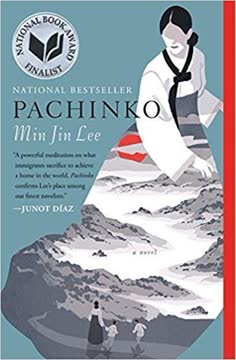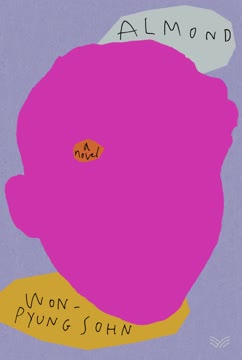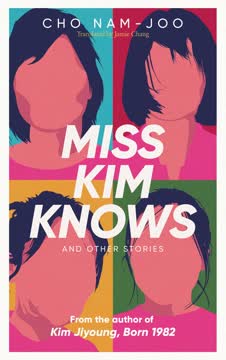Plot Summary
Autumn's Unraveling
Kim Jiyoung, a thirty-something mother in Seoul, begins to act strangely—speaking in the voices of other women, living and dead. Her husband, Daehyun, is baffled and concerned, but attributes her behavior to exhaustion from childcare. As Jiyoung's episodes intensify, she channels not only her mother but also a deceased friend, voicing grievances and memories she should not know. The family's daily life is quietly upended, and Daehyun, unable to ignore the changes, seeks psychiatric help for his wife. The opening sets the tone: a seemingly ordinary woman's breakdown is not just personal, but symptomatic of deeper, societal malaise.
Daughters and Disappointments
Jiyoung's childhood is shaped by a family and culture that values sons over daughters. Her grandmother and father openly favor her brother, while her mother, Oh Misook, internalizes and perpetuates these gendered expectations. Jiyoung and her sister share hand-me-downs and responsibilities, while their brother is coddled and prioritized. The family's history is one of survival, sacrifice, and the relentless pressure to produce sons, reflecting a society where daughters are often seen as disappointments or liabilities.
Lessons in Obedience
At school, Jiyoung learns to accept unfairness as normal. Boys are given priority in everything from food to leadership roles, and girls are expected to be diligent, helpful, and quiet. When bullied by a boy, Jiyoung is told he "likes" her, and her discomfort is dismissed. Even small victories—like changing the lunch line order—are hard-won and incomplete. The message is clear: girls must adapt, endure, and rarely question authority.
Adolescence and Awakening
As Jiyoung enters adolescence, her world expands but becomes more perilous. She faces sexual harassment at school and in public, and is blamed for the attention she receives. Dress codes and social expectations tighten, and her first period is treated as a shameful secret. The family's financial struggles during the Asian financial crisis add to the pressure, and Jiyoung witnesses her mother and sister making sacrifices for the family's survival.
The Weight of Womanhood
Jiyoung's mother's life story is one of deferred dreams—working to support her brothers' education, never given the chance to pursue her own ambitions. This pattern repeats in Jiyoung's generation: women are expected to be self-sacrificing, to put family first, and to accept limited opportunities. Even as laws and attitudes begin to shift, the underlying structures remain stubbornly unchanged.
Dreams Deferred
In college, Jiyoung is hopeful but quickly learns that hard work and talent are not enough. The job market is brutal, and women face invisible barriers: preferential hiring of men, lack of female mentors, and the expectation that women will eventually leave for marriage or motherhood. Jiyoung's friends drop out or burn out, and even the most qualified women are passed over or pushed out.
College and Cracks
Jiyoung's college years are marked by camaraderie and competition, but also by the slow realization that the system is rigged. Study groups, internships, and job fairs reveal the gendered networks that exclude women. Even when women succeed, they are often isolated, unsupported, and forced to choose between career and family.
Working Woman, Invisible Barriers
Jiyoung lands a job in marketing, where she is diligent and capable, but quickly learns that women are expected to do the "office housework" and are passed over for promotions. Sexual harassment is routine, and women who take maternity leave or demand fair treatment are seen as burdens. The few women who rise to leadership positions do so at great personal cost, and often feel complicit in perpetuating the system.
Marriage's Quiet Bargains
Jiyoung marries Daehyun, and their union is shaped by unspoken bargains. Despite promises of equality, traditional roles reassert themselves: Jiyoung is expected to manage the home, bear children, and defer to her husband's career. Family pressures to have a child—preferably a son—are relentless, and Jiyoung's own desires are sidelined in favor of social expectations.
Motherhood's Double Bind
Pregnancy and childbirth bring new challenges. Jiyoung is expected to be grateful for small accommodations at work, but any assertion of her rights is met with resentment. After her daughter is born, Jiyoung leaves her job, not out of choice but necessity. The work of motherhood is invisible, undervalued, and isolating, and Jiyoung is judged whether she stays home or seeks employment.
The Cost of Care
Jiyoung's days are consumed by childcare and housework, yet her labor is dismissed as "bumming around at home." Attempts to return to work are thwarted by inflexible hours, low pay, and the lack of support. Even part-time jobs are hard to come by, and the few available are menial and precarious. The economic and emotional costs of care fall almost entirely on women.
Identity Fractures
As Jiyoung's sense of self erodes, she begins to dissociate, speaking in the voices of other women—her mother, a dead friend, even strangers. These episodes are not just symptoms of mental illness, but expressions of collective trauma and suppressed rage. Jiyoung's breakdown is both personal and political, a manifestation of the impossible demands placed on women.
Voices Not Her Own
Jiyoung's episodes intensify, and she channels the grievances and memories of women who have been silenced or erased. Her family and doctors struggle to understand, but the root cause is clear: Jiyoung is not just suffering from depression, but from the cumulative weight of generational and societal misogyny.
Therapy and Blind Spots
Jiyoung's psychiatrist initially diagnoses her with postnatal depression, but as he listens to her story, he begins to question his assumptions. He reflects on his own wife's sacrifices and the ways in which men, even well-meaning ones, remain oblivious to women's struggles. Yet, even he is complicit in the system, preferring to hire unmarried women to avoid "childcare issues."
The Systemic Trap
The novel exposes how laws, customs, and workplaces conspire to keep women in subordinate roles. Even as some legal reforms are made, the culture of male preference and female sacrifice persists. Women are expected to adapt, endure, and never complain, while men are rarely asked to change.
Generational Echoes
Jiyoung's story is not unique; it echoes the experiences of her mother, her sister, her friends, and countless other women. Each generation faces new challenges, but the underlying dynamics remain the same. The novel suggests that without systemic change, these patterns will continue to repeat.
The World Unchanged
Despite individual acts of resistance and small victories, the world Jiyoung inhabits remains fundamentally unchanged. Women continue to be judged, dismissed, and devalued, whether as daughters, workers, wives, or mothers. The cost of survival is the erasure of self.
Hope, Deferred Again
The novel ends not with resolution, but with a sense of ongoing struggle. Jiyoung's story is left open, her fate uncertain. The hope for change is present, but always deferred—waiting for a world that truly values women as equals.
Characters
Kim Jiyoung
Jiyoung is the protagonist, an ordinary woman whose life is shaped by the expectations and limitations placed on Korean women. She is dutiful, hardworking, and eager to please, but gradually loses her sense of self as she navigates childhood favoritism, adolescent harassment, workplace discrimination, and the isolating demands of motherhood. Her psychological unraveling is both a personal tragedy and a collective indictment of a society that erases women's individuality.
Oh Misook (Jiyoung's Mother)
Oh Misook embodies the generational cycle of female sacrifice. She gives up her own education and ambitions to support her brothers, then works tirelessly to provide for her family. She internalizes the values of her time, urging her daughters to be selfless and resilient, but also regrets the opportunities she never had. Her relationship with Jiyoung is loving but fraught with unspoken sorrow and resignation.
Jung Daehyun (Jiyoung's Husband)
Daehyun is supportive and affectionate, but ultimately benefits from and perpetuates the gendered status quo. He promises to "help out" at home, but assumes Jiyoung will bear the brunt of childcare and domestic labor. His inability to defend Jiyoung against his family's criticisms, and his focus on financial stability over her fulfillment, reflect the quiet bargains of modern marriage.
Kim Eunyoung (Jiyoung's Sister)
Eunyoung is Jiyoung's older sister, a high-achieving student who becomes a teacher. She is outspoken and critical of gender roles, but ultimately makes pragmatic choices for the sake of family stability. Her path illustrates both the progress and the persistent limitations faced by women of her generation.
Jiyoung's Father
Jiyoung's father is a product of his time, valuing sons over daughters and expecting women to be self-sacrificing. His career setbacks and business failures add stress to the family, but he rarely acknowledges the contributions of his wife and daughters. His attitudes are both a source of pain and a reflection of broader societal norms.
Kim Eunsil (Team Leader)
Eunsil is Jiyoung's boss, a rare female leader in the workplace. She has fought hard to succeed, often by outworking her male colleagues and sacrificing personal time. She is both a mentor and a cautionary tale, recognizing that her own choices have made it harder for other women to demand fair treatment.
Kang Hyesu (Colleague)
Hyesu is Jiyoung's close colleague, who supports her through work and motherhood. She becomes a victim of a workplace spycam scandal, highlighting the vulnerability of women even in professional settings. Her resilience and solidarity with other women offer a glimpse of hope amid adversity.
Cha Seungyeon (Friend, Deceased)
Seungyeon is a college friend whose death during childbirth haunts Jiyoung. In her dissociative episodes, Jiyoung channels Seungyeon's voice, expressing grievances and memories that Jiyoung herself cannot articulate. Seungyeon represents both the literal and figurative casualties of a system that devalues women's lives.
The Psychiatrist
The male psychiatrist who treats Jiyoung is initially detached and clinical, but gradually comes to recognize the depth of her suffering and the societal roots of her condition. His reflections on his own wife's sacrifices reveal both his growing awareness and his ongoing complicity in the system.
Jiwon (Jiyoung's Daughter)
Jiwon is Jiyoung's young daughter, cherished but also a reminder of the cycle of expectations and disappointments that shape women's lives. Her presence raises questions about what, if anything, will change for the next generation.
Plot Devices
Dissociation and Possession
Jiyoung's dissociative episodes—speaking in the voices of other women—serve as both a symptom of her psychological distress and a metaphor for the collective trauma of women. These episodes allow the novel to weave together individual and generational experiences, blurring the line between personal illness and social critique.
Generational Storytelling
The novel uses the stories of Jiyoung's mother, sister, and friends to illustrate how patterns of sacrifice, disappointment, and resilience repeat across generations. This structure emphasizes the persistence of gender inequality, even as the specifics change.
Clinical Framing
The narrative is framed by psychiatric sessions and medical reports, highlighting how women's distress is often pathologized rather than understood as a rational response to systemic injustice. The psychiatrist's evolving perspective mirrors the reader's journey from detachment to empathy.
Social Realism and Statistics
The novel frequently incorporates real statistics, news stories, and historical context, grounding Jiyoung's personal story in the broader realities of Korean society. This device reinforces the universality of her experience and the urgency of the issues raised.
Symbolic Repetition
The novel's structure and imagery—births, deaths, job losses, and small acts of resistance—underscore the cyclical nature of women's struggles. Each generation faces similar obstacles, and progress is slow and often illusory.
Analysis
Kim Jiyoung, Born 1982 is a searing indictment of the everyday sexism that shapes women's lives in contemporary Korea—and, by extension, much of the world. Through the story of one "ordinary" woman, Cho Nam-Joo exposes the cumulative toll of small slights, structural barriers, and generational expectations. The novel's power lies in its specificity and universality: Jiyoung's experiences are deeply rooted in Korean culture, but resonate globally. The use of dissociation as both a plot device and a metaphor for collective trauma is particularly effective, forcing readers to confront the ways in which women are silenced, erased, and made to bear the burdens of family, work, and society. The book's clinical framing and inclusion of real-world statistics blur the line between fiction and reality, making its critique all the more urgent. Ultimately, the novel offers no easy solutions—change is slow, and hope is always deferred—but it insists on the necessity of seeing, naming, and challenging the forces that keep women in their place. The lesson is clear: until society values women as individuals, not just as daughters, wives, or mothers, the cycle will continue, and the cost will be borne by women like Kim Jiyoung.
Last updated:
FAQ
Synopsis & Basic Details
What is Kim Jiyoung, Born 1982 about?
- A Woman's Unraveling: Kim Jiyoung, Born 1982 follows the titular character, a seemingly ordinary South Korean woman in her early thirties, as she begins to exhibit dissociative episodes, speaking in the voices of other women she knows or knew. This psychological breakdown is initially attributed to postpartum depression by her husband, Jung Daehyun, but it soon becomes clear that her condition is a manifestation of deeper, systemic issues.
- Life's Gendered Labyrinth: The narrative delves into Jiyoung's life chronologically, from her childhood in the 1980s to her early adulthood and marriage, meticulously detailing the everyday sexism, discrimination, and microaggressions she experiences. Each stage of her life reveals how societal expectations, family dynamics, and workplace culture subtly but relentlessly erode her sense of self and limit her opportunities.
- A Societal Mirror: Framed by the observations of her male psychiatrist, the novel blends Jiyoung's personal story with statistical data and real-world events, transforming her individual struggle into a powerful indictment of pervasive gender inequality in South Korea. It explores the invisible burdens placed on women, from familial sacrifice to career stagnation, culminating in a poignant commentary on the cost of living as a woman in a patriarchal society.
Why should I read Kim Jiyoung, Born 1982?
- Unflinching Social Commentary: Read Kim Jiyoung, Born 1982 for its raw, unvarnished portrayal of systemic sexism and its profound impact on women's lives. The novel transcends a simple narrative, acting as a meticulously researched social critique that resonates far beyond its Korean setting, making it a vital read for understanding contemporary gender dynamics.
- Deep Emotional Resonance: The book offers a deeply empathetic and often heartbreaking exploration of Jiyoung's psychological journey, allowing readers to viscerally experience the cumulative weight of everyday discrimination. Her quiet suffering and eventual breakdown provide a powerful emotional core that challenges readers to confront their own biases and assumptions about women's experiences.
- Unique Narrative Structure: Cho Nam-Joo employs a distinctive narrative style, blending Jiyoung's personal anecdotes with objective, statistical data and the detached perspective of her psychiatrist. This "clinical framing" elevates the story from individual tragedy to a universal phenomenon, prompting readers to question the societal structures that perpetuate inequality and the often-unseen struggles of women.
What is the background of Kim Jiyoung, Born 1982?
- Post-IMF Crisis Korea: The novel is set against the backdrop of South Korea's rapid industrialization and the lingering effects of the 1997 Asian financial crisis (IMF crisis). This period saw significant economic restructuring, job insecurity, and increased competition, which disproportionately affected women as traditional gender roles were reinforced in times of scarcity, as seen with Jiyoung's father's early retirement and her mother's business ventures.
- Evolving Gender Norms vs. Reality: The book highlights the tension between progressive legal changes (like the abolition of the hoju system in 2008 and the formation of the Ministry of Gender Equality in 2001) and the slow pace of cultural and social change. While laws aimed for equality, deeply ingrained patriarchal attitudes continued to dictate women's roles in family, education, and the workplace, creating a confusing and often contradictory reality for women like Jiyoung.
- Statistical Realism: Cho Nam-Joo grounds the fictional narrative in extensive real-world data, citing specific statistics on sex ratios at birth, female employment rates, gender pay gaps, and maternity leave usage in Korea. This factual underpinning lends a powerful sense of authenticity and urgency to Jiyoung's experiences, transforming her story into a representative case study of broader societal issues.
What are the most memorable quotes in Kim Jiyoung, Born 1982?
- "You're doing great! You're working so hard! I appreciate you!": This quote, spoken by Jiyoung while channeling her deceased friend Cha Seungyeon, is a poignant plea for recognition and validation for the invisible labor of motherhood. It highlights the profound emotional toll of unacknowledged sacrifice and the desperate need for simple appreciation, a theme central to Jiyoung's unraveling.
- "It's like, you don't explain to me every line and every scene when we see a movie together. Guys who keep explaining things to their girlfriends during the game are, I dunno, kind of full of themselves. Are they here to see the game, or to show off? Anyway, it's uncool.": This seemingly innocuous quote from Jiyoung's college boyfriend subtly foreshadows his later, well-meaning but ultimately limited understanding of her experiences. It reflects a broader male tendency to avoid "explaining" or acknowledging the systemic issues women face, preferring to focus on individual interactions rather than deeper societal dynamics.
- "My routine, my career, my dreams, my entire life, my self—I gave it all up to raise our child. And I've become vermin. What do I do now?": This raw, desperate cry from Jiyoung after being called a "mom-roach" encapsulates the ultimate cost of societal devaluation of women's domestic labor. It powerfully articulates the complete erosion of her identity and self-worth, revealing the devastating psychological impact of being reduced to a derogatory label despite immense personal sacrifice.
What writing style, narrative choices, and literary techniques does Cho Nam-Joo use?
- Detached, Clinical Prose: Cho Nam-Joo employs a remarkably detached and objective narrative voice, particularly through the psychiatrist's framing, which often reads like a case study or report. This clinical distance, combined with the frequent insertion of statistical data, creates a sense of universal truth and scientific validity, preventing the reader from dismissing Jiyoung's experiences as merely individual or anecdotal.
- Chronological Unraveling: The story unfolds chronologically, tracing Jiyoung's life from childhood to motherhood, allowing the reader to witness the cumulative effect of gender discrimination. This linear progression emphasizes how seemingly minor incidents build upon each other, leading to her eventual psychological breakdown, highlighting the insidious nature of pervasive sexism.
- Shifting Perspectives & Voices: While primarily focused on Jiyoung, the narrative subtly shifts perspectives, particularly through Jiyoung's dissociative episodes where she embodies other women. This technique not only illustrates her mental state but also amplifies the collective female experience, giving voice to the silenced grievances of multiple women and underscoring the shared nature of their struggles.
Hidden Details & Subtle Connections
What are some minor details that add significant meaning?
- The "Stinking Formula": Jiyoung's sister, Eunyoung, refusing the brother's formula because "It stinks" (p. 17), is a subtle but powerful rejection of male privilege. It signifies an early, intuitive understanding of the unfairness inherent in their brother's favored status, even before Jiyoung fully grasps it, highlighting Eunyoung's more rebellious spirit and foreshadowing her later outspokenness.
- The Weather Strip Job's Toll: Jiyoung's mother's "weather strip" job, where she "often cut her finger on the paper film" and wore "two layers of work gloves, but her finger always bled anyway" (p. 21), symbolizes the invisible, painful, and often unacknowledged labor of women. Her father's belated complaint about the "smelly, dusty stuff" and his "I wish I could give you an easier life" (p. 22) reveals his limited awareness of her daily sacrifices, a pattern that echoes in Daehyun's later interactions with Jiyoung.
- The Cab Driver's "First Customer": The cab driver's comment, "I never take women for my first customer of the day. But I'm giving you a ride because I could tell you were going to an interview" (p. 60), is a chilling example of casual, ingrained misogyny. It implies that women are bad luck or less valuable customers, and that Jiyoung should be grateful for his "gracious" exception, underscoring the constant, subtle judgments women face in everyday interactions.
What are some subtle foreshadowing and callbacks?
- "Gum Someone Spat Out" Echoes "Mom-Roach": The older hiking club member's cruel comment about Jiyoung being "like chewing gum someone spat out" (p. 49) subtly foreshadows the later, devastating "mom-roach" insult. Both phrases dehumanize Jiyoung, reducing her to something discarded and worthless, illustrating a recurring pattern of male contempt and the profound impact of such language on her self-perception.
- Mother's Suppressed Dreams and Jiyoung's Career: Jiyoung's mother's confession, "I wanted to be a teacher, too" (p. 27), and her subsequent explanation of sacrificing her ambitions for her brothers, directly foreshadows Jiyoung's own career sacrifices for her family. This intergenerational echo highlights the cyclical nature of women's deferred dreams and the persistent societal pressure to prioritize family over personal aspirations.
- The "Hiccups" as a Metaphor for Suppression: The father's inability to hiccup, a detail the family once found amusing, and his sudden fit of hiccups after the mother's furious outburst (p. 70), subtly symbolizes the suppression and eventual eruption of truth and emotion. His "backward ideas" are linked to his emotional constipation, and the mother's rage acts as a catalyst, forcing a release of both his physical and ideological blockages.
What are some unexpected character connections?
- The Psychiatrist's Wife as Jiyoung's Parallel: The psychiatrist's reflections on his own wife's career sacrifices—from "professor of ophthalmology, to contract doctor, to giving up on her career entirely" (p. 150)—create an unexpected parallel with Jiyoung's life. This connection reveals that even women in privileged positions face similar systemic barriers and compromises, broadening the novel's critique beyond Jiyoung's specific circumstances and highlighting the universality of female struggle.
- Kim Eunsil and Oh Misook's Shared Burden: Team leader Kim Eunsil, despite her professional success, relies on her mother for childcare and domestic labor, mirroring Jiyoung's mother, Oh Misook, who also bore the brunt of household responsibilities. This connection subtly reveals that even "successful" women often achieve their status by offloading traditional female burdens onto other women, perpetuating a cycle of invisible labor rather than dismantling it.
- Cha Seungyeon as Jiyoung's Unconscious Voice: Cha Seungyeon, Jiyoung's deceased college friend, is not just a character Jiyoung channels, but a representation of Jiyoung's own suppressed desires for equality and recognition. Seungyeon's outspokenness ("I'm gonna keep fighting tooth and nail until the day a woman becomes president of the hiking club" p. 47) becomes Jiyoung's unconscious protest, allowing her to voice grievances she cannot articulate in her conscious state.
Who are the most significant supporting characters?
- Oh Misook (Jiyoung's Mother): Beyond being a "sacrificial matriarch," Oh Misook is a complex figure who embodies both the resilience and the internalized oppression of her generation. Her "natural business savvy" (p. 24) and fierce protection of her daughters (e.g., the "run wild" outburst, p. 70) reveal a strength and agency often overlooked, yet her own life choices were severely constrained, making her a poignant symbol of deferred potential and intergenerational burden.
- Kim Eunyoung (Jiyoung's Sister): Eunyoung serves as a foil and a mirror to Jiyoung, representing a more outspoken and critically aware female experience. Her direct challenges to gender norms (e.g., the ramen incident, p. 37; her refusal to be a teacher initially, p. 42) highlight the nascent feminist consciousness of her generation, even as she ultimately makes pragmatic choices that echo her mother's sacrifices, underscoring the persistent societal pressures.
- Kim Eunsil (Team Leader): Eunsil is crucial as a rare female leader who has navigated the "glass ceiling" but recognizes the personal cost and the systemic issues that remain. Her efforts to implement paternity leave and eliminate unnecessary company dinners (p. 79) demonstrate a conscious attempt to change the workplace culture, making her a symbol of both the possibility and the immense difficulty of institutional reform from within.
Psychological, Emotional, & Relational Analysis
What are some unspoken motivations of the characters?
- Daehyun's Desire for "Normalcy": Daehyun's motivation for wanting a child, beyond genuine desire, is subtly driven by a need to conform to societal and familial expectations, as evidenced by his suggestion to "just have a kid" to stop his parents' nagging (p. 97). This unspoken pressure to fulfill traditional roles highlights his complicity in perpetuating the very system that burdens Jiyoung, even if he is well-meaning.
- Jiyoung's Mother's "Tough Love": Oh Misook's seemingly harsh advice or lack of overt sympathy for Jiyoung's struggles (e.g., "Don't even get me started. Your sister was loud from the very start... it was hell" p. 129) is an unspoken motivation to prepare her daughters for the harsh realities of womanhood. Having endured immense hardship herself, she implicitly believes that resilience and self-reliance are the only ways to survive, even if it means suppressing her own pain and not openly validating her daughters'.
- The Psychiatrist's Self-Justification: The psychiatrist's detailed reflections on his wife's career and his own "enlightenment" (p. 150) are subtly motivated by a need to justify his own privilege and past ignorance. While he gains awareness, his concluding thought about hiring an "unmarried" replacement (p. 156) reveals an underlying self-interest and a continued prioritization of convenience over true systemic change, exposing the limits of individual "enlightenment."
What psychological complexities do the characters exhibit?
- Jiyoung's Dissociation as a Collective Voice: Jiyoung's dissociative disorder is not merely a mental illness but a complex psychological response to the cumulative trauma of sexism. By channeling other women, she externalizes the unspoken grievances and suppressed identities of countless women, transforming her personal breakdown into a collective protest against a society that denies women their individual voices and experiences.
- Daehyun's Benevolent Ignorance: Daehyun exhibits the psychological complexity of "benevolent ignorance," where his genuine affection and desire to "help out" (p. 105) coexist with a profound lack of understanding of Jiyoung's lived reality. His inability to truly empathize with her sacrifices stems from his privileged position, highlighting how even well-meaning men can inadvertently perpetuate systemic inequality due to their limited perspective.
- Oh Misook's Internalized Patriarchy: Jiyoung's mother, Oh Misook, displays the psychological complexity of internalized patriarchy. Despite her own history of sacrifice and her moments of fierce protectiveness towards her daughters, she also perpetuates gendered expectations (e.g., "The next one will be a boy" p. 119). This internal conflict reflects how deeply societal norms can be ingrained, even in those who suffer from them, creating a cycle of both resistance and complicity.
What are the major emotional turning points?
- The "Gum Someone Spat Out" Revelation: The moment Jiyoung overhears the male senior calling her "chewing gum someone spat out" (p. 49) is a critical emotional turning point. It shatters her perception of male allies and reveals the insidious, dehumanizing undercurrent of sexism, even from seemingly "level-headed" men. This incident deeply wounds her self-worth and marks a significant shift in her trust and perception of men.
- The "Mom-Roach" Insult: The park incident where Jiyoung is called a "mom-roach" (p. 140) is a devastating emotional climax. It represents the ultimate societal devaluation of her identity and labor as a stay-at-home mother, pushing her to a breaking point where she questions her entire existence and sacrifices. This public humiliation directly triggers her more severe dissociative episodes, highlighting the profound impact of social contempt.
- Jiyoung's "Help Out" Confrontation: Jiyoung's angry outburst at Daehyun, challenging his use of "help out" (p. 105) for shared responsibilities, is a powerful emotional turning point. It signifies her refusal to passively accept the unequal burden of domestic and childcare labor, marking a rare moment of direct confrontation and a desperate attempt to reclaim agency and demand true partnership, even if it leaves her feeling "bad about jumping down his throat."
How do relationship dynamics evolve?
- Jiyoung and Daehyun: From Romance to Resentment: Their relationship evolves from a "passionate romance" (p. 10) to one strained by unspoken resentments and a growing chasm of understanding. Daehyun's initial support ("I'll help out. I'll change the diapers," p. 100) gradually gives way to his inability to truly comprehend Jiyoung's sacrifices, leading to her frustration and his bewilderment, ultimately highlighting the limitations of individual goodwill against systemic inequality.
- Jiyoung and Her Mother: Unspoken Understanding: The dynamic between Jiyoung and her mother, Oh Misook, evolves from a traditional mother-daughter relationship to one of unspoken, empathetic understanding. While the mother initially perpetuates traditional expectations, her later moments of shared pain and quiet support (e.g., bringing food, her own stories of hardship) reveal a deep, wordless bond forged through shared female experience, transcending their generational differences.
- Jiyoung and Her Female Colleagues: Solidarity and Disillusionment: Jiyoung's relationships with female colleagues like Kang Hyesu and Kim Eunsil evolve from professional camaraderie to a bond of shared struggle and solidarity. The spycam incident, in particular, solidifies their connection, revealing the necessity of collective action and mutual support in a hostile environment, even as it leads to disillusionment with the broader corporate and male-dominated world.
Interpretation & Debate
Which parts of the story remain ambiguous or open-ended?
- The Nature of Jiyoung's "Recovery": The novel leaves Jiyoung's ultimate recovery ambiguous. While the psychiatrist notes her symptoms "have decreased in frequency, they have yet to disappear" (p. 149), her future remains uncertain. This ambiguity challenges the reader to consider whether true healing is possible without fundamental societal change, or if Jiyoung is merely learning to cope within an unchanged system.
- The Psychiatrist's True Transformation: While the psychiatrist claims to have gained "awareness" (p. 150) and reflects on his wife's sacrifices, his final thought about hiring an "unmarried" replacement (p. 156) leaves his true transformation open to debate. It questions whether his newfound understanding is genuine empathy or merely a pragmatic recognition of women's "inconveniences," suggesting that even those who claim enlightenment can remain complicit in systemic issues.
- The Future for Jiwon: The ending leaves the future of Jiyoung's daughter, Jiwon, open-ended. While Jiyoung's struggles highlight the cyclical nature of female experience, the novel doesn't explicitly state whether Jiwon will face the same challenges or if her generation will see true progress. This ambiguity serves as a call to action, prompting readers
Review Summary
Kim Jiyoung, Born 1982 depicts the life of a South Korean woman facing systemic sexism and misogyny. Readers found it relatable, eye-opening, and infuriating, praising its portrayal of gender inequality in various aspects of life. Many felt it should be mandatory reading, especially for men. The writing style received mixed reactions, with some finding it dry but effective. The book sparked controversy in South Korea, leading to both praise and backlash. Overall, reviewers commended its powerful social commentary and ability to resonate with women globally.
Similar Books
Download PDF
Download EPUB
.epub digital book format is ideal for reading ebooks on phones, tablets, and e-readers.
















